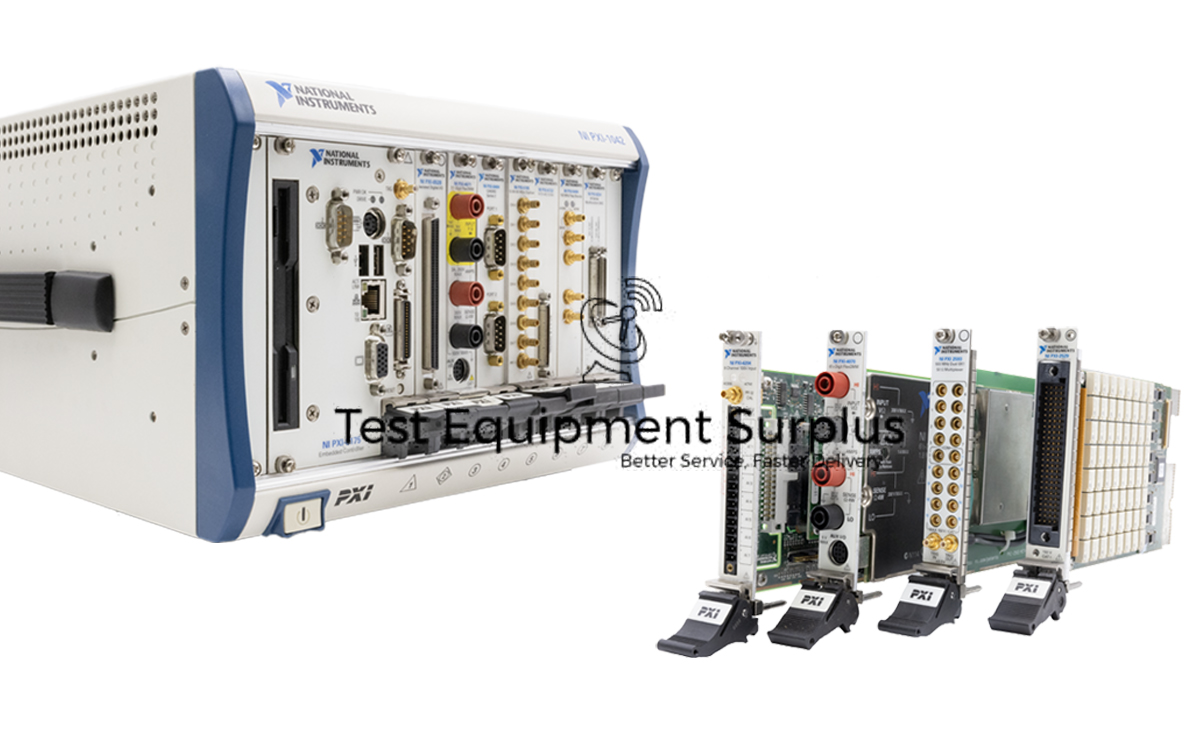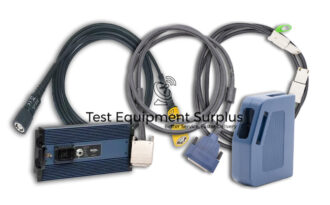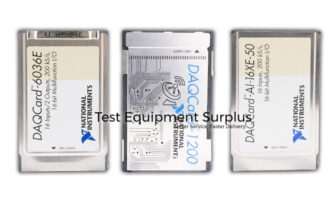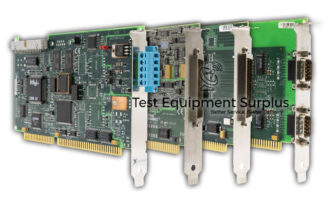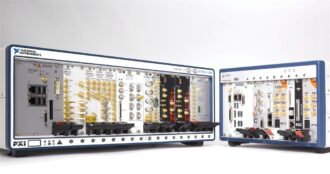Description
The National Instruments PXIe-7856 is a high-performance PXI Multifunction Reconfigurable I/O Module featuring eight analog inputs and outputs, as well as 48 digital input/output channels.
It has part numbers PXIe-7856R and 784145-01, and is capable of a sample rate of 1 MS/s, allowing for rapid data acquisition and processing.
Equipped with a powerful Kintex-7 160T FPGA, this module offers substantial computational capabilities right on the hardware itself.
The integration of two 68-pin VHDCI I/O connectors facilitates extensive connectivity options, while each channel’s dedicated Digital-to-Analog Converter (DAC) ensures precise control over signal outputs.
With 2 LVTTL, LVCMOS compatible digital I/O connectors, it accommodates a wide range of digital signals, and the logic level can be easily set via software, defaulting at 3.3V.
The module’s first digital I/O connector supports signals with a maximum frequency of up to 10 MHz across 16 channels, whereas the second connector accommodates higher-speed signals of up to 80 MHz on 32 channels.
| Feature | Specification |
|---|---|
| Product Type | National Instruments PXIe-7856 PXI Multifunction Reconfigurable I/O Module |
| Part Numbers | PXIe-7856R, 784145-01 |
| Analog Inputs | Eight |
| Analog Outputs | Eight |
| Digital Input/Outputs | 48 |
| Sample Rate | 1 MS/s |
| FPGA | Kintex-7 160T FPGA |
| I/O Connectors | Two 68-pin VHDCI |
| DAC per Channel | Dedicated Digital-to-Analog-Converter (DAC) per channel |
| Digital I/O Connectors | 2 LVTTL, LVCMOS compatible |
| Logic Level | Software-selectable, default at 3.3V |
| Max Frequency (Connector 0) | Up to 10 MHz |
| Channels (Connector 0) | 16 digital channels |
| Max Frequency (Connector 1) | Up to 80 MHz |
| Channels (Connector 1) | 32 channelsQuestion 1: What type of FPGA is integrated into the National Instruments PXIe-7856 module, and how does it contribute to the module’s computational capabilities? Answer 1: The National Instruments PXIe-7856 module integrates a Kintex-7 160T FPGA, which contributes to the module’s computational capabilities by allowing for high-speed data processing and real-time execution of complex algorithms directly on the hardware. Question 2: What is the maximum sample rate of the National Instruments PXIe-7856, and how does its onboard Kintex-7 160T FPGA enhance its data processing capabilities? Question 3: What are the capabilities and features of the National Instruments PXIe-7856 module in terms of analog and digital I/O channels, FPGA specifications, connectivity, and supported signal frequencies and levels? Question 4: What is the maximum frequency supported by the first digital I/O connector on the National Instruments PXIe-7856 module, and on how many channels is this frequency available? Question 5: What is the maximum frequency supported by the first digital I/O connector of the National Instruments PXIe-7856 module, and how many channels does it support at this frequency? |

